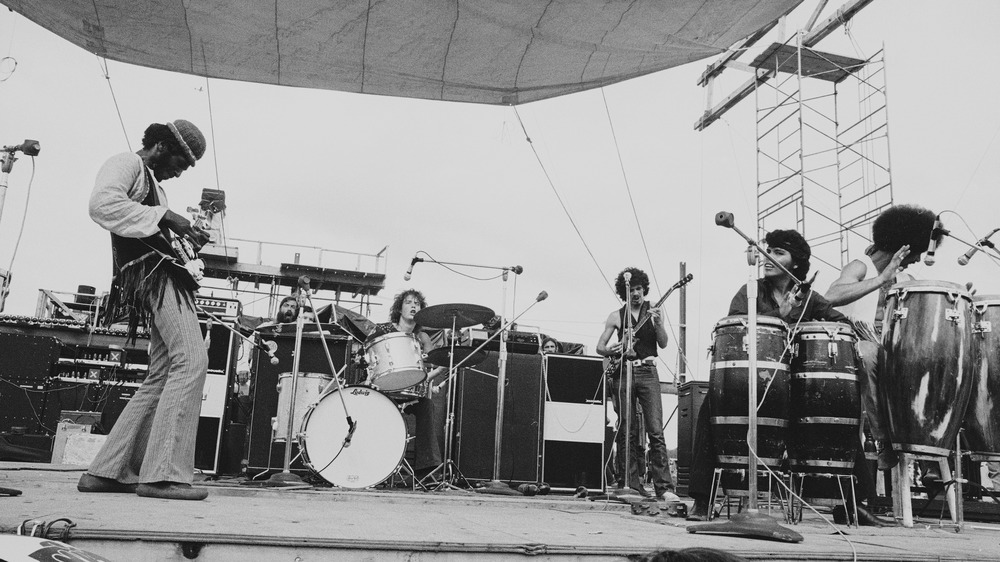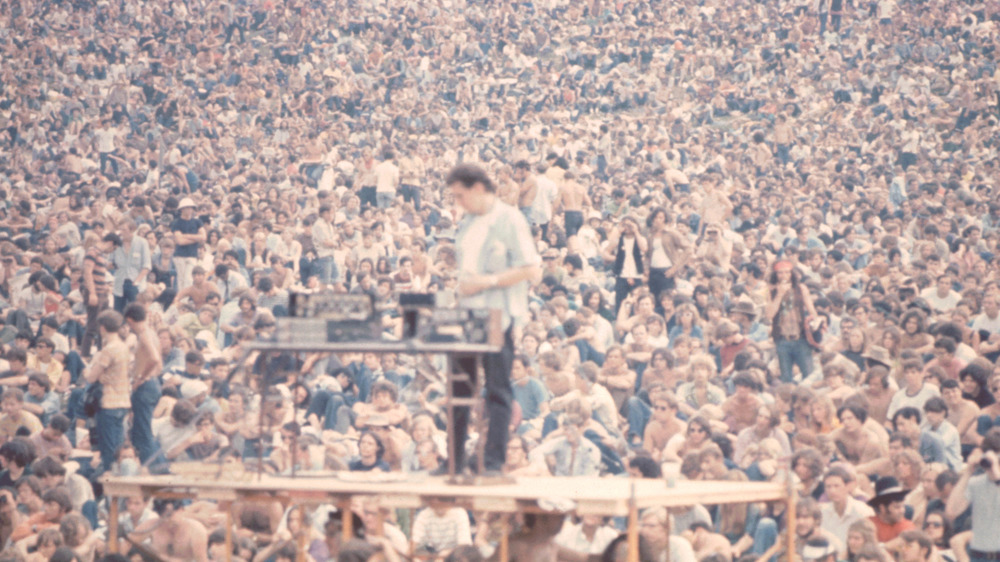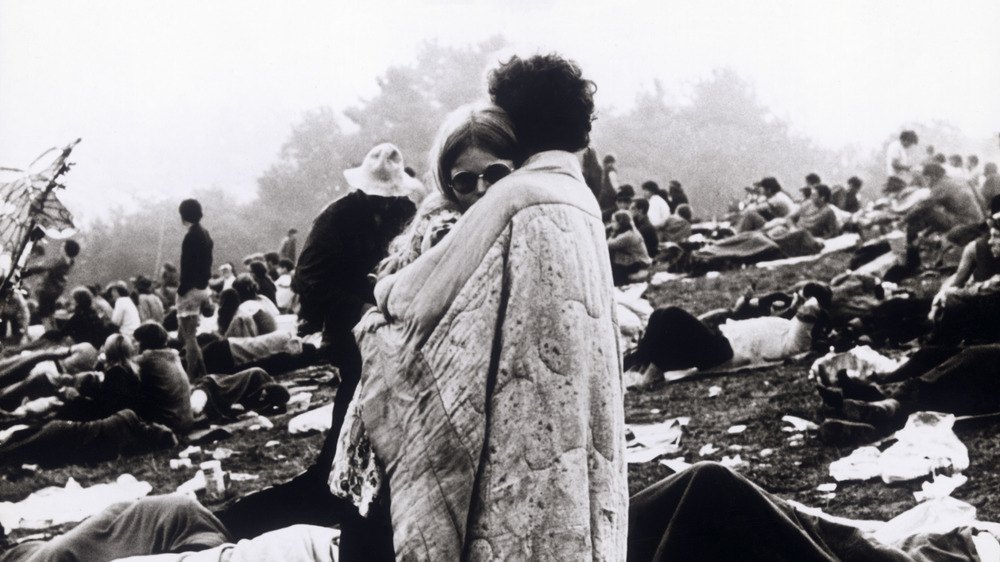This Is Why Woodstock Didn't Actually Turn A Profit
Woodstock has become one of the defining moments of counterculture history, a beacon that heralded the end of the 1960s while also casting a long shadow over rock and roll music in the years that followed. Aside from the Summer of Love in 1967, the 1969 Woodstock festival is also remembered as one of the high points of the hippie movement, an enormous gathering of just under half a million nonconformists seeking to get loose over "3 days of peace and music," as the event was described in promos at the time.
But the emblematic festival wasn't as much of a well-behaved love-in as those clips of Santana hitting it out of the park with their show-stopping version of "Soul Sacrifice" would have you believe. Despite the success of Woodstock as an enduring moment in American counterculture and its status today as the ultimate music festival to which all other festivals are compared to this today, the event was, at best, chaotic. At worst, some would describe it as downright calamitous.
For it would be an understatement to say that Woodstock didn't exactly go according to plan. According to Louder, the festival began with a 17-mile long traffic jam as ten times the estimated number of visitors descended upon Max Yasgur's 600-acre dairy farm in Bethel, New York. Yet despite the turnout, Woodstock was destined to become a huge financial loss for the promoters. Here's why.
Half a million Woodstock tickets?
You would think that any promoter would be over the moon when demand for their event exceeds expectations to such a degree. But though the huge crowds that Woodstock attracted are now central to the festival's mythology, the turnout wasn't quite the boon for the organizers that you might expect.
As Louder notes, Woodstock was the brainchild of four young promoters: John Roberts, Joel Rosenman, Artie Kornfeld, and Michael Lang, the oldest of which was just 26 years old. The four men had originally envisaged Woodstock as a ticketed event, with advance tickets costing $18 (around $125 today) and tickets at the gate retailing at $24. The potential turnover was enormous, but the four young organizers had banked on one thing: being able to control who came in, and who went out.
However, the youthful team behind Woodstock hadn't managed to put fences and ticket barriers up by the time the festival began and, as a result, the event quickly became a free-for-all. Though 186,000 advance tickets had been sold (hey, in miles per second, that's the speed of light; trippy or what?), the promoters were later obliged to refund around 10% of those, according to the BBC, as the surrounding traffic jams meant that many of the original ticket buyers were unable to get to the festival they had paid for.
Woodstock left its promoters millions in the red
Imagine being millions of dollars in debt in your early twenties. That's exactly where the promoters of Woodstock found themselves by the end of 1969, as the unexpected costs of hosting a festival for half a million people piled up. As well as the losses they accrued through lost ticket sales, the promoters had originally agreed to pay $75,000 to Yasgur for the use of his farm, but they were then ordered to reimburse the milk farmer a further $50,000 for damage done to his property, according to Louder. On top of that, the insistence on booking the best in the business — such as Jimi Hendrix, who was the highest-paid act in the line-up — meant that the bill for artists came to an eye-watering $180,000 (more than $1.2 million today).
But the logistics of trying to prevent such an unexpectedly large event from falling apart cost the promoters even more. Woodstock "transformed Bethel into the third-largest city in New York State," says the Observer, and "the organizers didn't foresee having to kick-in extra tens of thousands of dollars for helicopters to transport food, supplies and the musical acts to and from the site."
It is estimated that the promoters eventually sank $3.1 million into Woodstock ($15 million today). However, they were in luck. The following year, 1970, saw the release of the Woodstock documentary movie, according to the BBC. It was a huge hit, raking in $50 million in the U.S. alone.


